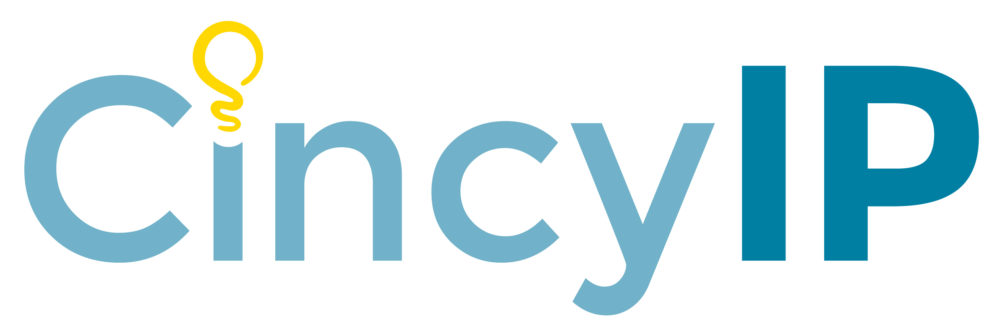CincyIP Presents:
Termination of Copyright Transfers
Featuring
Stephen E. Gillen
Partner, Wood, Herron & Evans, LLP
Timothy K. Armstrong
Professor, University of Cincinnati College of Law
and
Davida Isaacs
Professor, University of Kentucky College of Law
July 12, 2011
11:45am – 1:30pm
The Cincinnatian Hotel
This course has been approved by the Supreme Court of Ohio Commission on Continuing Legal Education for 1.0 total CLE hour instruction.
In order to protect authors of older works from being bound to an unfair deal they entered into when they had little bargaining power, the Copyright Act provides for certain opportunities to terminate the transfer of a copyright, thus recapturing control of the copyright. Currently, such rights of termination are not waiveable by contract or other means.
This program will describe the contours of these opportunities for termination, as well as their costs and benefits. In addition, program participants will discuss the impact of these statutory provisions on public grants under widely used “open content” licensing arrangements, such as the GNU General Public License (“GPL”) for software or the Creative Commons family of licenses for other sorts of expressive works. Users of such works must confront the possibility that the licenses may be revoked in the future and the works effectively withdrawn from public use, with potentially chaotic results. Participants will also consider Professor Armstrong’s proposed legislative solution, which would authorize authors to make a nonwaiveable, irrevocable dedication of their works to the public — a possibility that the Patent Act expressly recognizes, but the Copyright Act presently does not.
Stephen E. Gillen is a partner at Wood, Herron & Evans, LLP. Prior to entering private practice in 1994, Steve served as house counsel for South-Western Publishing Company (an educational publisher owned by Cengage, f/k/a The Thomson Corporation). In addition, Steve has served on copyright and permissions committees with the Association of American Publishers. He has written and spoken nationally on various publishing and copyright topics and teaches a course in Media Business and Law at the University of Cincinnati and a course in Electronic Media Law at the College Conservatory of Music. He currently serves on the Council of Advisors to the Text and Academic Authors Association, the Board of Trustees of Voyageur Media Group, Inc., and is a member of the Authors Guild. Steve’s practice emphasizes publishing and entertainment transactions and disputes, internet issues, advertising law, computer law, copyrights, technology transfer, trade secrets, and related matters. His clients include several East Coast publishers as well as authors, artists, photographers, videographers, independent producers, Internet service providers, multimedia developers, and software programmers from Maine to California.
Timothy K. Armstrong is a Professor at the University of Cincinnati College of Law. Professor Armstrong earned his bachelor’s and master’s degrees from The University of
Texas at Austin and his law degree, with high honors, from the University of Texas School of Law. Following his clerkship with the Court of Appeals for the Fifth Circuit, Professor Armstrong practiced with the law firm of Howrey, Simon, Arnold & White in Washington,
D.C. He has also earned a Master of Laws degree from Harvard Law School.
During his career in private practice, he specialized in Supreme Court and appellate litigation. Professor Armstrong’s other primary areas of experience in practice included administrative law, antitrust law and trade regulatory issues, labor arbitration, and government contract disputes. Before joining the University of Cincinnati College of Law faculty, Professor Armstrong worked as a Clinical Teaching Fellow for the Berkman Center for Internet & Society at Harvard Law School. Professor Armstrong is a co-author of Info/Law, a weblog focusing on legal issues arising from the domain of high technology and the Internet. His research interests include copyright issues as well as other issues surrounding free and open-source software, among others. He is the author of “Shrinking the Commons: Termination of Copyright Licenses and Transfers for the Benefit of the Public”, recently published in the Harvard Journal on Legislation.
Davida H. Isaacs is a Professor at the University of Kentucky College of Law. Professor Isaacs graduated magna cum laude from Brandeis University, then with her law degree from New York University School of Law where she was Associate Editor of the NYU Review of Law and Social Change. She then practiced intellectual property law (primarily litigation) at Kaye, Scholer, Fierman, Hays and Handler in New York and Venable, Baetjer, Howard and Civiletti in Washington, D.C., handling clients including Pfizer, Teva, Johnson & Johnson, Coach, and New Line Productions.
She has taught intellectual property courses, including copyright law, at a variety of law schools including Northern Kentucky University and the University of Maryland. She is currently on the faculty at the University of Kentucky, teaching copyright. Professor Isaacs’ scholarly focus is the balance between the rights of intellectual property owners and the public interest, including issues such as which intellectual property qualifies as ’property’, what is the scope of those property rights, and when the public interest justifies limiting intellectual property owners’ rights. Her article on the copyrightability of legal documents has been the subject in numerous fora, including academic conferences, The Wall Street Journal’s legal blog, and most recently several blog posts concerning Apple’s current patent and trade dress lawsuit against Samsung.
PRICES (including lunch):
• $20 for Members (includes 1 Hr Ohio CLE) [cart-button item=”4″]
• $30 Non-Member with CLE [cart-button item=”5″]
• $20 Non-Member without CLE [cart-button item=”6″]
• $15 Students and Full-Time Academics [cart-button item=”7″]
Registration ends at noon on Wednesday, July 6.

